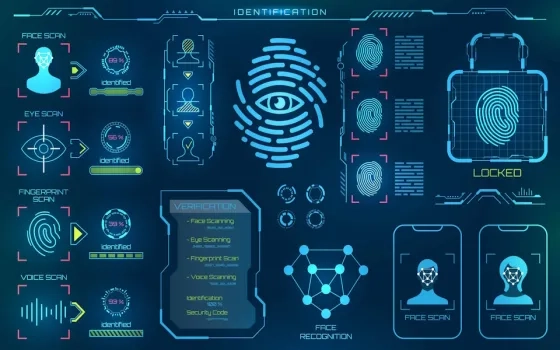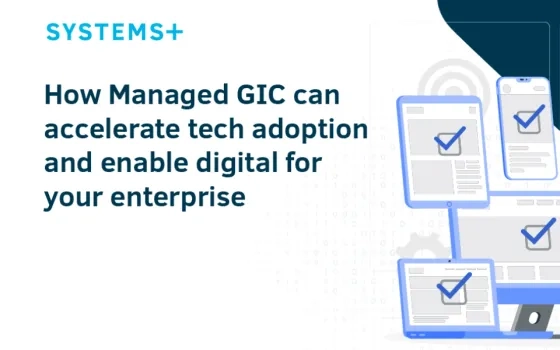
As a Senior Cyber Security Specialist, I’ve seen directly the increasing number of threats businesses face in today's digital world. Cyberattacks are evolving quickly, and no company is infected. Whether you're a small startup or a large enterprise, understanding and implementing Cyber Security Essentials is crucial for protecting your organization’s sensitive data, maintaining your reputation, and ensuring business continuity. In this blog, I will walk you through some of the most important Cyber Security Essentials that every business should consider. Let's break it down into key areas that are vital for securing your digital environment.
What is Cyber Security
Cybersecurity is the practice of protecting computers, networks, and data from digital attacks. It involves using tools and techniques to prevent unauthorized access, data theft, and damage. Cybersecurity is important for individuals, businesses, and governments to keep their information safe. Common threats include hackers, viruses, and phishing scams. Good cybersecurity practices include using strong passwords, keeping software updated, and being cautious online. It helps ensure privacy, trust, and security in the digital world. As technology grows, cybersecurity becomes more crucial in keeping systems safe.
Step-by-Step Cybersecurity Essentials for Businesses
Employee Training
One of the most important Cyber Security Essentials that often gets overlooked is employee education. No matter how advanced your technical defenses are, human error can be a significant vulnerability. Employees should be trained to identify common cyber threats like phishing emails, suspicious links, and malware. By creating a culture of security awareness, your staff will become the first line of defense against cyberattacks. Regular training sessions on Cyber Security Essentials can go a long way in reducing the likelihood of successful cyberattacks. Keep your staff up to date on the latest tactics used by cybercriminals to ensure that they know how to respond to potential threats.
Use Strong Passwords
Passwords are a fundamental aspect of Cyber Security Essentials, yet many businesses continue to use weak or easily guessable ones. It's important to enforce strong password policies within your organization. Passwords should be at least 12 characters long, including a mix of upper and lowercase letters, numbers, and special characters. Additionally, implementing multi-factor authentication (MFA) adds an extra layer of protection. If your business has a lot of accounts, consider using a password manager to store and organize passwords securely. This simple yet effective step is one of the easiest Cyber Security Essentials you can implement to strengthen your defenses.
Data Encryption
Encrypting sensitive data is one of the best ways to protect your business from data breaches. Cyber Security Essentials demand that you encrypt both stored and transmitted data. Encryption converts information into unreadable code, making it nearly impossible for unauthorized users to access or steal the data. This is especially important if your business handles personal information, payment details, or any confidential documents. Without encryption, even the most advanced firewalls can’t guarantee that your data remains safe. Always prioritize data encryption as part of your overall security strategy.
Regular Software Updates and Patches
One of the most common ways cybercriminals exploit vulnerabilities is through outdated software. As part of your Cyber Security Essentials, make sure to regularly update all operating systems, software, and applications used by your business. This includes both your internal systems and any third-party software. Most software companies release patches to fix vulnerabilities as they are discovered. If you fail to update your systems, you're leaving the door open for attackers. Schedule routine updates to ensure your systems are always protected against the latest threats.
Firewall Protection
A firewall is one of the first defenses against cyberattacks, blocking unauthorized traffic from entering your network. It is crucial to implement both hardware and software firewalls as part of your Cyber Security Essentials. These firewalls act as a barrier between your business network and the outside world, preventing hackers from accessing your internal systems. It’s also essential to configure firewalls properly to ensure they are effectively filtering traffic. Regularly review firewall settings and make necessary adjustments to maintain optimal security.
Backup Your Data
Data loss can be devastating for any business. Whether it’s due to a cyberattack, a hardware failure, or human error, having regular backups in place is critical to minimizing the impact of such events. As part of your Cyber Security Essentials, ensure that you have a reliable and secure backup solution. Store your backups in multiple locations, including off-site or in the cloud, to protect against data loss from physical damage (like fire or flood). Additionally, make sure backups are encrypted and regularly tested for integrity.
Secure Your Network
A strong network infrastructure is essential for protecting your business from cyberattacks. This means implementing network segmentation, securing your Wi-Fi networks, and using Virtual Private Networks (VPNs) for remote access. Network segmentation ensures that if one part of your network is compromised, the attacker cannot easily move across the entire infrastructure. Additionally, if your employees work remotely or from various locations, ensure they use a secure VPN to protect their internet connection. A VPN encrypts data as it travels between devices and your network, making it more difficult for hackers to intercept or steal sensitive information.
Monitor and Respond to Threats
Monitoring your network for unusual activity is another crucial aspect of Cyber Security Essentials. A proactive approach to threat detection is vital to identifying cyberattacks before they cause serious harm. Using tools like Security Information and Event Management (SIEM) systems, intrusion detection systems (IDS), and antivirus software can help monitor your business for any suspicious activity. Having an incident response plan in place is also crucial. In case of a breach, your business should have a team in place to respond quickly and effectively. This plan should include containment procedures, communication strategies, and steps for recovering data. Regularly review and update your response plan as part of your Cyber Security Essentials.
Control Access to Sensitive Information
Access control is another key element of Cyber Security Essentials. Not all employees need access to all information. Implement role-based access control (RBAC) within your organization to ensure that employees only have access to the data they need to do their jobs. This minimizes the risk of sensitive data being exposed or stolen. Consider using identity and access management (IAM) systems to streamline the process of controlling user access. These systems allow businesses to set rules for who can access which information and how.
Third-Party Vendor Security
Many businesses rely on third-party vendors for various services, from cloud storage to customer support. However, third-party vendors can pose a security risk if they don’t adhere to strong Cyber Security Essentials. Before entering into partnerships with vendors, make sure they have robust cybersecurity policies in place. You should also regularly audit third-party vendors and their security practices. A vendor’s security breach can quickly become your own, so it's important to ensure they meet your standards for data protection.
Cybersecurity is more important than ever. By implementing Cyber Security Essentials across all aspects of your business, you can protect your sensitive data, your reputation, and your bottom line. Start with the basics train your employees, use strong passwords, encrypt your data, and update your systems regularly. Then, build on that foundation with firewalls, data backups, network security, and access control. Finally, monitor for threats and respond swiftly when necessary. By taking these steps, your business will be better equipped to handle the ever-evolving cyber threats. Stay vigilant, stay prepared, and prioritize Cyber Security Essentials as a core part of your business strategy.





























